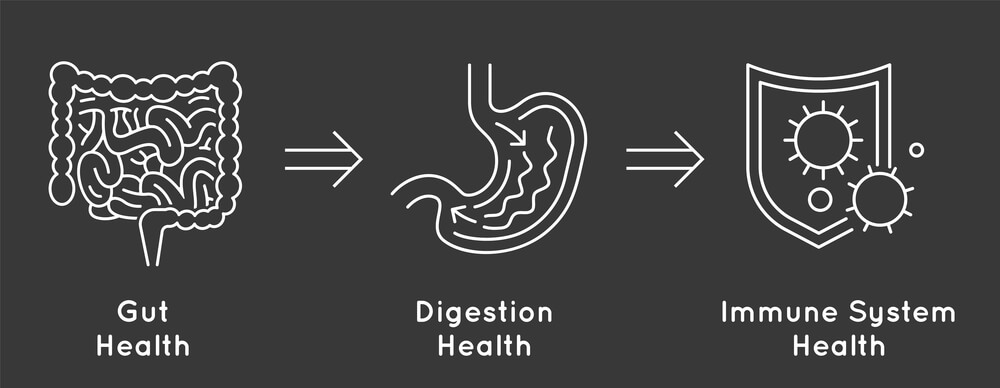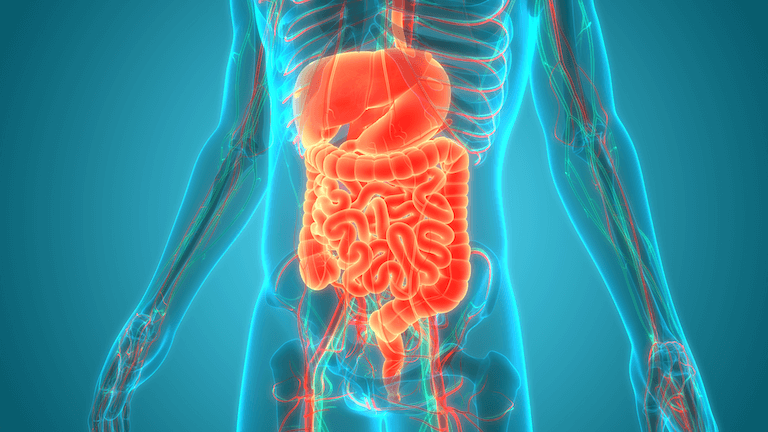What is Lipopolysaccharide (LPS) and Why Does it Matter?
Lipopolysaccharide (LPS) might not be a household name, but it’s crucial to understanding our body’s overall health, particularly concerning our gut and chronic inflammation. Essentially, LPS is an endotoxin (inflammatory trigger) found in the outer membrane of gram-negative bacteria (bacteria that are hard to kill, such as E. Coli).
Its presence is not inherently harmful; however, when the bacteria die and release LPS into our system, it can trigger an immune response leading to inflammation.
This blog aims to shed light on what LPS is, how you may be exposed to it, and LPS’s role in our gut health and chronic inflammation. It will also provide insights into managing its levels for better overall health.
Understanding LPS: A Simple Explanation
Imagine LPS as a foreign visitor who, under normal circumstances, resides peacefully within our gut “community.” However, when it crosses the boundaries into our bloodstream – due to a compromised gut barrier often referred to as “leaky gut” – it can become an unwelcome guest, prompting our immune system to act. This reaction is natural but, when persistent, can lead to chronic inflammation linked to various health conditions such as cardiovascular disease.
But how do you get exposed to gram-negative bacteria that lead to the release of LPS in the first place?
Most commonly, gram-negative bacteria can enter your bloodstream through open wounds, during surgical procedures, or contact with anything that could be carrying it, such as sinks. Gram-negative bacteria are also found in open standing water or refrigerators.
Before you panic and start stress cleaning your sinks and refrigerators, it is important to note that gram-negative bacteria are also found naturally in your body. Only when gram-negative bacteria begin to over-multiply do you run into problems with LPS and chronic inflammation.
A great example of this is food poisoning, caused by gram-negative bacteria entering your system and causing an inflammatory response, causing your body to fight it and, therefore, making you sick. Now, you will be sick for a day or two and return to normal, but other gram-negative bacteria can wreak havoc on your body and cause far more significant problems when left unchecked.
How LPS Affects Your Gut Health and Chronic Inflammation
The gut is not just a digestive organ but a crucial immune system component. A healthy gut boasts a robust barrier that selectively allows nutrients to pass into the bloodstream while blocking harmful substances. However, when this barrier is compromised, a condition known as “leaky gut” or increased intestinal permeability occurs, creating a pathway for LPS to infiltrate the bloodstream.

Unchecked LPS in the gut can initiate a cascade of undesirable effects. For starters, it stimulates an immune response, leading to inflammation. While short-term inflammation is a part of the body’s natural defense mechanism, chronic inflammation can disrupt gut health, altering the balance of the gut microbiota. This dysbiosis, or imbalance in the gut flora, can further exacerbate the leakiness of the gut barrier, creating a vicious cycle where more LPS enters the bloodstream, promoting further inflammation.
Excessive LPS in the gut can interfere with nutrient absorption and digestion, contributing to gastrointestinal issues like bloating, gas, and irregular bowel movements. Over time, this persistent state of inflammation can leave the gut vulnerable to more severe illnesses, including inflammatory bowel diseases (IBD), such as Crohn’s disease and ulcerative colitis, and even increase the risk of developing autoimmune conditions.
To mitigate the risks associated with unchecked LPS, it is essential to consume a diet rich in fiber, fermented foods, and anti-inflammatory nutrients that can support a healthy gut microbiome, reducing the likelihood of imbalance and maintaining the integrity of the gut barrier. While LPS is a natural component of our gut microbiota, its uncontrolled presence due to a compromised gut barrier can lead to significant health issues such as chronic inflammation.
The Role of LPS in Body Inflammation
The battle against intruders like LPS can take a toll on the body, especially when it’s a relentless fight. When your immune system is perpetually on high alert to fend off such threats, it can lead to chronic inflammation. This constant battle not only exhausts the body’s defenses but can also lead to the gradual decline of bodily tissues and organs.
High levels of inflammation over time can weaken the body’s ability to repair itself, disrupt normal functions, and increase the risk of developing chronic diseases.
The key to preserving health and preventing disease lies in managing the root causes of inflammation, such as controlling the levels of LPS in the gut, reducing the burden on the body’s immune system, and supporting its ability to maintain balance and well-being.
How to Lower LPS Levels for Better Health
To effectively manage Lipopolysaccharide (LPS) levels and enhance overall health, prioritizing a diet abundant in whole foods, rich in fiber, and packed with anti-inflammatory nutrients can significantly strengthen the gut barrier. This restricts the entry of LPS into the bloodstream and nurtures a robust gut microbiome.
Foods such as leafy greens, colorful vegetables, fruits, and omega-3 fatty acids like fatty fish and flaxseeds all provide the necessary nutrients to repair the gut lining and reduce inflammation, thereby minimizing the adverse effects of LPS.
Beyond diet, lifestyle practices play a crucial role in lowering LPS levels. Engaging in regular physical activity, adopting stress-reduction techniques such as mindfulness or yoga, and ensuring sufficient quality sleep each night can collectively bolster gut health. These practices not only aid in maintaining a healthy gut barrier but also contribute to the overall reduction of inflammation in the body.
In addition to these natural approaches, specific supplements and advanced therapies can offer further support. Probiotics, for instance, introduce beneficial bacteria to the gut, aiding in the balance of the microbiome and the integrity of the gut barrier. Omega-3 fatty acid supplements can also be beneficial, offering anti-inflammatory properties that support gut health.
Hyperbaric Oxygen Therapy (HBOT) and Hyperthermic Ozone and Carbonic Acid Transdermal Therapy (HOCATT) present innovative options for those seeking more targeted interventions.
HBOT enhances cellular repair and reduces inflammation by delivering high oxygen concentrations to the body’s tissues. This not only aids in healing the gut lining but also supports the body’s natural defense mechanisms against LPS-induced damage. Similarly, HOCATT works by detoxifying the body and improving circulation, further aiding in reducing LPS levels and associated risks.
Ultimately, developing a personal gut health protocol under the guidance of an experienced functional medicine doctor can provide a comprehensive strategy for managing LPS levels.
By combining dietary adjustments, lifestyle changes, supplementation, and innovative therapies like HBOT and HOCATT, individuals can take proactive steps toward reducing LPS-induced inflammation and promoting long-term health and well-being.
Taking Control of Your Health: LPS Management
Understanding the role of LPS in gut health and systemic inflammation is just the beginning. Taking steps to manage its levels can profoundly affect your health and well-being.
At Hyperbaric Wellness Center, Dr. Tony Aboudib utilizes a holistic approach to health, incorporating Functional Medicine principles to address issues like LPS, leaky gut, and chronic inflammation at their source. With over 13 years of experience in functional medicine, Dr. Tony is equipped to guide you through the complexities of your health concerns.
Taking control of your health starts with understanding the underlying factors that contribute to it. By managing LPS levels and supporting gut health, you’re addressing immediate concerns and paving the way for long-term wellness.
If you’re ready to explore how Functional Medicine can support your health journey, consider scheduling a free consultation with Dr. Tony Aboudib at Hyperbaric Wellness Center. Together, we can chart a course toward a healthier, more vibrant you.
Disclaimer: The information provided in our blog posts is for educational and informational purposes only and is not intended as medical advice. While we strive to share knowledge and insights on health-related topics, this content should not be used as a substitute for professional medical advice, diagnosis, or treatment. Always consult with a qualified healthcare professional regarding any medical concerns or decisions related to your health and well-being.
Resources:
Lahey Hospital & Medical Center. (2022, May 19). Gram-negative Bacterial Infection – Lahey Hospital & Medical Center, Burlington & Peabody. Lahey Hospital & Medical Center, Burlington & Peabody. https://www.lahey.org/lhmc/department/allergy-and-immunology/conditions-diagnosis/gram-negative-bacterial-infection/
Oliveira, J., & Reygaert, W. C. (2023, August 8). Gram-Negative bacteria. StatPearls – NCBI Bookshelf. https://www.ncbi.nlm.nih.gov/books/NBK538213/

